
Middlesex County Divorce Lawyers
Going through a divorce can be a complicated, even overwhelming experience. That said, if you are facing a divorce or any other family law matter, having the right team of lawyers in your corner can make a world of difference. Contact the Middlesex County divorce lawyers at Arndt & Sutak, LLC today so we can guide you through your divorce and onto a brighter future.
Trusted Divorce Lawyers Serving Middlesex County & Edison, NJ
If you’re going through a divorce having reputable, experienced Middlesex County divorce lawyers on your side is critical. You have plenty of divorce lawyers to choose from, but you don’t want to leave your future in the hands of a lawyer who hasn’t handled similar cases.
The Edison family lawyers at Arndt & Sutak, LLC help clients navigate the complicated divorce process and strive to make it as smooth as possible. Our areas of concentration include, but are not limited to:
- Child Support
- Child Custody
- Property Distribution
- Uncontested Divorce
- Alimony
- Dissipation of Assets & Debts
- Division of Retirement Accounts
Jessica L. Arndt & Alison J. Sutak have more than a decade of experience helping clients with a smooth divorce process so they can start the next stage of their lives. Divorce proceedings can be incredibly complex, so having a divorce attorney with experience handling various cases can save you time, money, and a lot of headaches.
Going through a divorce is never easy, but our team is here to help make it as simple and stress-free as possible. We put together a legal strategy to help you now and in the future.
Understanding Grounds for Divorce: Fault vs. No-Fault in NJ
In New Jersey, divorces can be filed on either fault or no-fault grounds. Understanding the difference between these two can significantly impact the approach and outcome of your case.
Fault Grounds for Divorce
Fault grounds are reasons attributed to one spouse’s misconduct leading to the dissolution of the marriage. These include:
- Adultery: When one spouse engages in an extramarital affair.
- Desertion: Willful abandonment for at least 12 months.
- Extreme Cruelty: Physical or mental cruelty that makes it unreasonable to continue cohabitation.
- Addiction: Substance abuse of alcohol or drugs for at least 12 consecutive months.
- Institutionalization: If one spouse has been institutionalized for mental illness for 24 or more consecutive months.
- Imprisonment: Imprisonment for 18 months or more after the marriage.
- Deviant Sexual Conduct: Conduct that is deemed deviant by the court.
No-Fault Grounds for Divorce
No-fault divorce is often the preferred route for many individuals because it is typically less contentious and less expensive. In New Jersey, the two no-fault grounds are as follows:
- Irreconcilable Differences: The most common ground, requiring that the couple has experienced irreconcilable differences for at least six months.
- Separation: Living separate and apart for at least 18 consecutive months with no reasonable prospect of reconciliation.
Many people opt for no-fault divorces because they simplify the legal process, reduce conflict, and focus on resolving the issues at hand, rather than placing blame. This can be particularly beneficial when children are involved, as it fosters a more amicable environment for co-parenting.
Navigating Contested vs. Uncontested Divorce Proceedings
When filing for divorce, it is crucial to understand whether your case is contested or uncontested, as this distinction will shape the entire legal process.
What is a Contested Divorce?
In a contested divorce, the spouses cannot agree on one or more critical issues, such as child custody, alimony, division of assets, or child support. This type of divorce often involves the following:
- Lengthier legal proceedings that are often more complex.
- Multiple court appearances and hearings.
- Discovery processes, including the exchange of documents and financial information.
- Potential involvement of experts, such as financial analysts or child psychologists.
- Mediation sessions in an attempt to resolve disputes before trial.
Because contested divorces can be prolonged and costly, having skilled Middlesex County divorce lawyers is essential to advocate effectively on your behalf.
What is an Uncontested Divorce?
On the other hand, an uncontested divorce occurs when both spouses agree on all major issues. This type of divorce is typically faster and less expensive, involving:
- Filing a joint divorce petition or one spouse filing and the other not contesting.
- Drafting a marital settlement agreement outlining the terms of the divorce.
- Court approval of the agreement without the need for a trial.
Uncontested divorces are ideal for couples who are able to communicate effectively and negotiate terms cooperatively. This route minimizes stress and preserves a more amicable relationship post-divorce, which is especially beneficial if children are involved.
A Step-by-Step Guide to the New Jersey Divorce Process
The divorce process is document-heavy and often, complex, which is why you should never go through it without a team of skilled divorce lawyers in your corner. That said, a brief overview of the divorce process in New Jersey is as follows:
- Filing a Complaint for Divorce: The process begins when one spouse (the plaintiff) files a Complaint for Divorce with the family division of the Superior Court in the county where they reside.
- Service of Process: The plaintiff must serve the divorce papers to the other spouse (the defendant), who then has 35 days to respond.
- Case Management Conference: Early in the process, a Case Management Conference may be scheduled to set deadlines and discuss the case’s progress.
- Discovery Phase: Both parties exchange financial information and other relevant documents. This stage is crucial for identifying assets, debts, and other pertinent details.
- Settlement Discussions: Throughout the process, parties are encouraged to negotiate and settle their differences through their attorneys or mediation.
- Mediation: If the parties cannot reach an agreement, they may be required to attend mediation to resolve disputes related to child custody, support, and property division.
- Pre-Trial Conference: If mediation fails, a pre-trial conference is held to prepare for the trial. The judge will try to narrow down the issues and encourage settlement.
- Trial: If no settlement is reached, the case proceeds to trial. Each party presents evidence and witnesses, and the judge makes decisions on contested issues.
- Final Judgment of Divorce: Once all issues are resolved, whether through settlement or trial, the court issues a Final Judgment of Divorce, legally ending the marriage.
- Post-Judgment Matters: Sometimes, post-judgment motions are necessary to address issues like modification of support or enforcement of the divorce decree.
Contact Our Dedicated Middlesex County Divorce Attorneys Today
Arndt & Sutak, LLC has extensive experience representing clients in Middlesex County, including in Piscataway, Monroe, Milltown, East Brunswick, Metuchen, Highland Park, and throughout New Jersey who are going through the divorce process. Contact our firm today so we can help work toward the most positive outcome possible.
© 2026 Arndt & Sutak, LLC.
All rights reserved. Attorney advertising.




